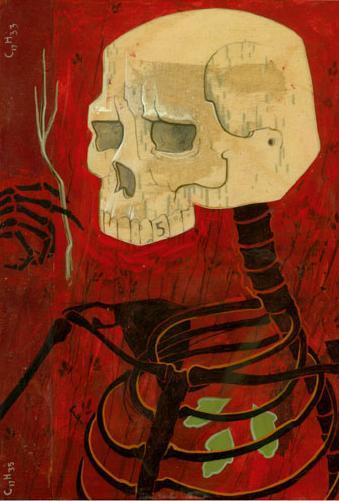After a while I settled into the theme of the summer, the daily wake and the schedule of breaks, the afternoon naps after a day on the jackhammer, the evening boozer on the beach. These things became my routine. One day wasn't much discernable from the other, barring of course the workman's appreciation for the weekend. Woo-hoo! And as things got normalized, coming into work early in the morning became a communal sentence. I mean, everyone is groggy at 6 in the morning, until someone decides to take upon themselves something physically strenuous. Then everyone else refuses to be out done, and the workday starts itself.
Every our of this day, the heigh-ho, is helped along by radio. Sometimes, if most of the guys on the site are black, someone would put on a soul station, or the foreman would cycle to his oldies station. But usually it was country. Ninety percent of the time. Contemporary country. 2004 was the summer of Gretchen Wilson, Big & Rich, and "Live Like You Were Dying". The latter song, written by the Goatee in Black Tim McGraw, is a great example of the kind of fatalistic melodrama that takes over half the country market. The other half, of course, belongs to ruckus tunes; good old boy music (or more recently bad little girl music, aka GW) about how good we do it down here. Friends in low places sort of thing.
All of that is well and good, and actually makes the workday go by faster than the grave tunes. Even if you don't agree with the ridiculous or rawcous lyrics, you can at least resign your brain to the standardized beat. Hammer bang bang. Drum machine bang bang. And who's to say you need to like the lyrics anyway. Singing along with a song with words like "save a horse, ride a cowboy" is actually kind of fun, despite the innanity of the sentiment. Who can be worried about banging a hammer when you can do it to the chorus from "Redneck Woman". The innanity works for most. But I can't really sing along to that kind of stuff. I'm a crooner. Perhaps it was hearing Randy Travis' "For Ever and Ever" at too young an age, I just like the slow and dramatic melody.
"Drugs or Jesus", by the same Tim McGraw, lays the drama pretty thick. The song begins with some pretty foreboding piano progression, the sort of thing that used to lead off a rock ballad in the 80s, and then a few taps of the high hat, just to let you know that things are going to get serious. A few poiniant vibrato notes on the guitar, and then you're ready. "In my hometown" McGraw begins, you're either lost or you're found." So begins the stark realities that reflect most everyone's experience with "coming home." You return and find the failed and the found haunting the same places you saw since you were 7 (the successful ones probably aren't around). One of the best songs about the subject, "Left and Leaving" by The Weakerthans, provides a similar sentiment:
i'm back with scars to show,
back with the streets i know,
will never take me anywhere but here.
McGraw is young enough to get away with a song about coming back home. He's been around a little, seen the big city and had his showbiz moment, and has returned to his hometown of Rayville, Louisiana to see two camps of people. Those that look for Jesus, and those that are looking for the next fix.
we follow the roads that lead us
...[dramatic pause]... to drugs or Jesus.
Of course, he's not going to get anywhere without any conflict. McGraw knows his audience. (in fact, you could say he knows Nelly's audience, too, given their recent collaboration) And he knows his audience would love to hear a story about spritual movement. And since a story about the Glory of God goes on the gospel channel, its important that McGraw sings about a time when he wasn't so holy, when he had to struggle through his faith. And then he has to tell us about it (it's just part of the salvation).
The music, however, doesn't endure the same kind of progression. The lyrical arrangement is a pretty standard chorus-verse affair, including even the recent rap trick of having the chorus fill in the last words of a verse (think Common's "Go" or Usher's "Burn"). The pianos and guitars crescendo when you expect them to, a solo sneaks in behind the crucial born-again moment, and after McGraw comes down on the side of God the outro uses perhaps the oldest trick in the Book ("Hallelujah, hallelujah, ...").
Subscribe to:
Post Comments (Atom)

No comments:
Post a Comment